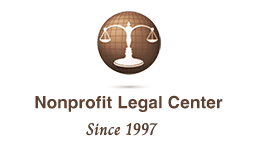Are you planning to start a nonprofit organization, or do you already have one but are facing challenges? It’s always better to start an organization after partnering with an attorney.
The United States has more than 1.8 million nonprofit organizations! The number of nonprofits has grown at a steady rate of 1.4% annually over the last 20 years.
More than 10% of companies in the US are nonprofit organizations, representing about 6% of the US economy, and 40% of nonprofits are religious organizations, schools, and foundations. This data shows the positive growth in nonprofits, which makes it a good investment.
In this blog, you will learn the importance of an attorney for a nonprofit organization.
Why is an Attorney Important for Nonprofit Organizations?
1. Navigating Complex Regulatory Requirements
There are numerous complex federal, state, and local regulations associated with nonprofit organizations. In addition to that, there are numerous relevant laws, like the Internal Revenue Code, which governs tax-exempt status.
It’s not possible to take care of all this without any assistance.
- Forming the Organization
The process of establishing a nonprofit is not as easy as you might think! It includes choosing the appropriate legal structure, drafting and filing articles of incorporation, and creating bylaws. EIN
This is too many legal formalities for you to handle alone, but having an attorney by your side ensures that these documents meet all legal requirements.
- Obtaining Tax-Exempt Status
A 501(c)(3) status from the IRS is critical for many nonprofits, as it allows your organization to be exempt from federal income tax and also allows donors to make tax-deductible contributions.
This is again a difficult task, but an attorney can guide the organization through the application process and ensure compliance with ongoing reporting obligations in time.
- State Compliance
Nonprofit firms must also adhere to state-specific regulations, including registering for state tax exemptions and filing annual reports.
Attorneys can help you navigate these requirements to avoid potential penalties in the future.
2. Governance and Fiduciary Duties
There are many duties, like fiduciary responsibilities, including duties of care, loyalty, and obedience, while running a nonprofit organization.
Attorneys for nonprofit organizations play a vital role in advising on governance matters to ensure these duties are upheld.
- Board Training
Attorneys provide training to board members on their legal responsibilities. This helps them understand their roles and the implications of their decisions.
- Conflict of Interest Policies
An attorney helps to draft and implement policies to address conflicts of interest among board members and staff of your organization.
- Risk management
Legal counsel assists in identifying potential legal risks and developing strategies to mitigate them; this protects your organization and its stakeholders.
3. Contractual Agreements and Relationships
Nonprofit firms often enter into contracts for purposes like fundraising, leasing property, and hiring staff or contractors. Thus, these agreements need to be carefully drafted.
- Drafting and Reviewing Contracts
Whether it’s a grant agreement, vendor contract, or employment agreement, attorneys review and draft contracts to protect your nonprofit’s interests. They must ensure compliance with applicable laws.
- Negotiations
Legal counsel assists in negotiating terms that are favorable to your organization.
- Employment Law Compliance
Nonprofits must comply with employment laws, including wage and hour regulations, anti-discrimination laws, and workplace safety standards.
Attorneys help navigate these requirements and address any employment-related issues.
4 . Intellectual Property Protection
Many nonprofits develop valuable intellectual property (IP), such as trademarks, logos, publications, and educational materials.
Protecting this IP is crucial for maintaining the organization’s brand and mission integrity.
- Trademark Registration
Attorneys assist in registering trademarks to protect your nonprofit’s name and logo from unauthorized use.
- Copyright Issues
Legal counsel helps safeguard original works, such as educational materials and publications.
This, in turn, ensures the control of your organization over other copies.
- Licensing Agreements
Attorneys draft licensing agreements that allow others to use your nonprofit’s IP, but this is done only after protecting your organization’s rights and interests.
5. Fundraising and Compliance with Charitable Solicitation Laws
Attorneys for nonprofit organizations ensure compliance with charitable laws and help navigate complex fundraising regulations.
- Registration Requirements
Attorneys can guide your organization through the complex registration process and ensure ongoing compliance.
- Donor Agreements
Legal counsel assists in drafting agreements that outline the terms and conditions of major gifts. They ensure clarity and compliance with donor intent.
- Fundraising Activities
From organizing events to launching online fundraising campaigns, attorneys help ensure that all fundraising activities comply with relevant laws and regulations.
6. Handling Disputes and Litigation
Despite your best efforts, you may encounter legal disputes, whether related to employment issues, contractual disagreements, or governance conflicts, but you can sit freely if you have an attorney by your side.
- Dispute Resolution
Legal counsel assists in resolving disputes through negotiation, mediation, or arbitration.
- Litigation Representation
If a dispute escalates to litigation, attorneys represent you in court, advocate for your organization’s interests, and work toward a favorable outcome.
7. Advocacy and Lobbying Compliance
If your nonprofits engage in advocacy and lobbying to advance your missions, they ensure compliance with lobbying regulations and help navigate the complexities of legal formalities
- Lobbying Disclosure
Nonprofits must always comply with federal and state lobbying disclosure requirements.
Legal counsel helps you to understand these requirements and maintain compliance.
- Political Activity Restrictions
Attorneys advise on the legal limits of political activities for tax-exempt organizations, helping you avoid jeopardizing your organization’s tax-exempt status.
Conclusion
Attorneys are an absolute necessity for a nonprofit organization! They help you in many ways and keep you on the safe side. If you invest in attorneys for nonprofit organizations, you are basically investing in a trustworthy lookout partner.
Join hands with the Nonprofit Legal Center for expert attorneys! We take care of all your legal needs. Contact us today for safe legal navigation and more information.







